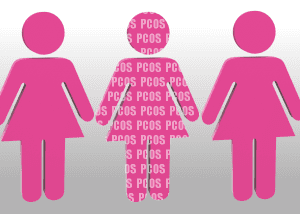PCOS Part I: my story
 I’ve been wanting to write about PCOS for a long time, but wasn’t sure how to start, because it’s such a huge part of my life. PCOS is what inspired my career path, and to learn everything I could about health and fitness, especially for women. I intend for this to be an on-going discussion in my blog so that I can do the topic justice. First, I will start with a brief overview and my personal journey.
I’ve been wanting to write about PCOS for a long time, but wasn’t sure how to start, because it’s such a huge part of my life. PCOS is what inspired my career path, and to learn everything I could about health and fitness, especially for women. I intend for this to be an on-going discussion in my blog so that I can do the topic justice. First, I will start with a brief overview and my personal journey.
What is PCOS (Polycystic Ovarian Syndrome)? In simple terms, it is an imbalance of hormones caused by insulin resistance in females. This imbalance of hormones causes eggs in the ovaries to become stuck as cysts and never release into the fallopian tubes, making it the number one cause of infertility in women (though many women with PCOS are able to have children when the condition is properly managed or with fertility treatments). The current statistics are that 1 in 10 women have PCOS (I believe there are MANY more that don’t know they have it), and over 60% of women that have PCOS are overweight or obese.
I was diagnosed with PCOS in February 2006. I went to my OB/GYN because my mood swings were out of control, and no matter what I did, I couldn’t lose weight. Doctors don’t really understand how to treat PCOS. Trust me, I’ve been to several of them. They usually tell you that you need to eat well and lose weight and it will get better. But this condition makes it twice as difficult to lose weight than it is for a woman without PCOS, so that’s easier said than done. Sometimes they prescribe Metformin (a diabetic drug) and the birth control pill. Both are just band-aids for the underlying issues.
In 2007, I challenged myself to learn how to live with this condition without being obese, as my body seemed to want to gravitate toward obesity. I signed up for a figure competition in June 2008, and the experimenting began. What I found was that I needed to treat myself like a diabetic. All processed carbs were out: my body swells like a balloon when I eat a piece of bread. My body loves a high protein diet with moderate fat intake. I limited carbs to only 2 servings daily; before and after my workout. My body likes rolled oats and quinoa, but sweet potatoes and rice make me hungry an hour later. I can’t eat fruit, even when accompanied with a fat, because I will have a blood sugar crash. I was able to lose 30lbs, and though I wasn’t as lean as the rest of the women on stage, I was damn proud of myself, and I learned everything I needed to know about how my body processes food.
Losing weight didn’t resolve this issue for me, but it did make managing my weight a lot easier. PCOS can be self-inflicted through poor eating habits and lack of exercise, or it can be genetic and it never really goes away (as in my case), but you can learn to manage it. With PCOS, there is no slipping up, being lazy, or “just having one piece of candy.” It’s a battle every day just to maintain your weight, and losing weight is an entirely different story, but it is NEVER an obesity sentence. I know this because I fight this battle every day of my life.
As the obesity rate continues to rise, I believe we will start hearing more about self-induced cases of PCOS, and women using it as an excuse as to why they can’t lose weight. PCOS is not an excuse to be obese. You have to work twice as hard as everyone else, and it is a difficult journey, but your health is worth it.
Ashley Brodeur, MS, CPT
Exercise Physiologist
Owner, Active Lifestyle Fitness, LLC
